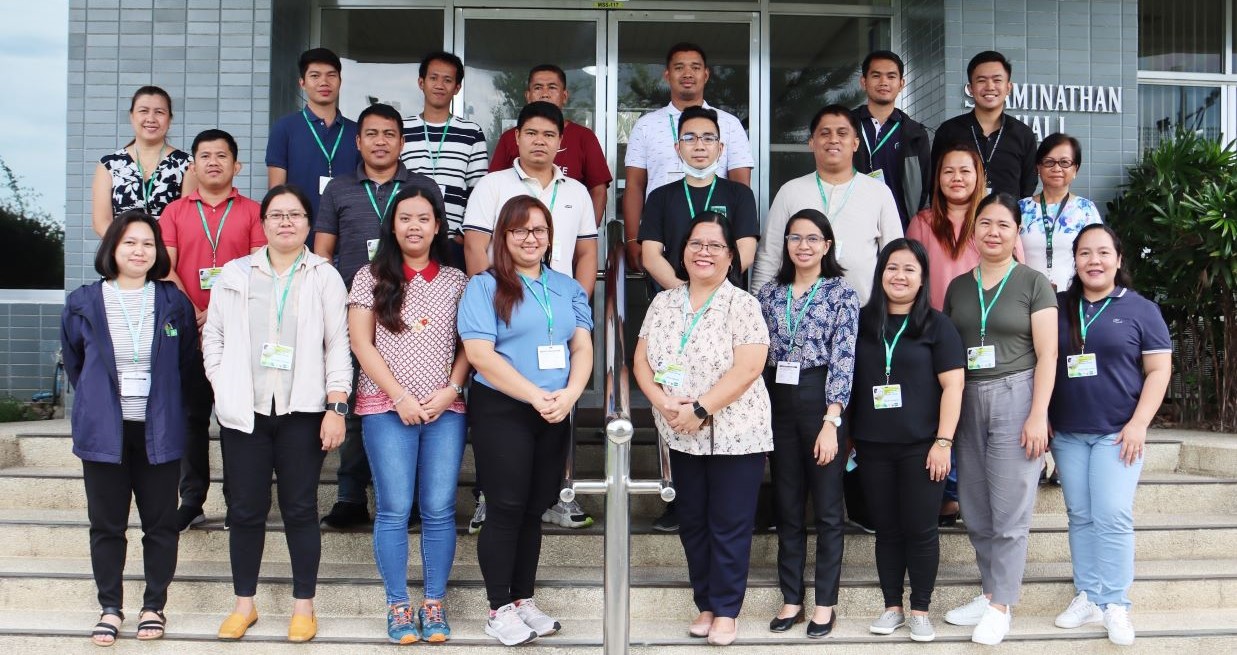In the evolving digital age, the International Rice Research Institute (IRRI) recently held a groundbreaking face-to-face course, ‘Digital Knowledge and Tools for Precision Farming’ from 3-5 October 2023. The program aimed to facilitate the adoption of appropriate digital technologies, maximize impact in the shortest time, and produce substantive benefits for the rice industry stakeholders.
The course offered an overview of digital knowledge and tools for precision farming within the rice value chain, highlighting their advantages and potential to maximize benefits for researchers, rice farmers, producers, and consumers.
This program was designed for the regional staff of the Philippine Department of Agriculture (DA), Philippine State Universities and Colleges, and Local Government Unit Agriculture Extension Workers (AEWs), as part of the SERVE 2 Project, a collaboration between DA and IRRI that aims to educate and help build the capacity of national agricultural extension and research programs (NAREP) towards Agriculture 4.0.
In the inaugural session of the course, Dr. Madonna Casimero, IRRI Senior Scientist and Project Leader for the SERVE 2 Project, emphasized the pivotal role of Digital Agriculture (Agriculture 4.0) and precision farming in Philippine agriculture. Following this, a panel of experts presented various technologies, including MOET, RCM, RKB, Rice Doctor, ORYZA, and more, exploring their applications throughout the rice value chain. The session also encompassed essential modules on data collection, data processing, big data and analytics, as well as the integration of digital knowledge. The participants concluded the program by presenting their action plans during a concluding presentation workshop.
“The Digital Knowledge and Tools for Precision Farming Course is the best training course I’ve had so far. It opened my eyes to the incredible potential within the rice value chain and how we can integrate other commodities specific to each region. I’m particularly excited about the future of small and smart farms, coupled with digital tools and highly innovative facilities, that will contribute to sustainable food production,” expressed Ms. Mitchel V. Canogoran, Technical Staff at the Department of Agriculture RFO12.
Another participant, Ms. Cherry Mae C. Cuevas, Assistant Professor 3 at Bulacan Agricultural State College, commented, “The training course was exceptionally well-organized, and every minute of the 3-day program was utilized effectively. I gained valuable insights and skills related to digital agriculture that I can enhance further and share with my colleagues, students, and various community members.”
As this program concludes, IRRI reaffirms its commitment to advancing digital agriculture and precision farming. The enthusiasm and insights shared by participants underscore the transformative potential of digital tools in agriculture. The journey towards sustainable farming through innovation continues, with IRRI working alongside in driving this movement forward.


